Renault to replace Moov’in with Zity in Paris
Renault and Ferrovial will bring their electric car-sharing Zity, which was launched in Madrid in 2017, to Paris in March. The launch on the Seine will take place with 500 Renault Zoe, which should replace Renault’s previous Moov’in fleet. In the coming years, the electric car-sharing service is to be extended to other European cities.
The change comes as a surprise, as Renault has only launched an electric car-sharing scheme called Moov’in in Paris in mid-2018 with ADA, a subsidiary of the Rousselet Group with more than 100 car rental agencies. The car group was thus the first of several providers (including Free2Move from PSA and ShareNow from Daimler and BMW) to enter the supply gap created by Autolib, the long-standing stationary electric car-sharing service. Various French media report that Moov’in is now being abandoned in favour of Zity.
In fact, there is much to suggest that Renault is making a fresh start with a different partner and a slightly different concept. This is because both Moov’in and Zity rely on 500 vehicles (mainly the Zoe, Moov’in also some Twizy), are based on the free-floating approach, both cover Paris and the northern neighbouring commune of Clichy. Renault would, therefore, compete with two almost identical offers in the same zone. Most unlikely.
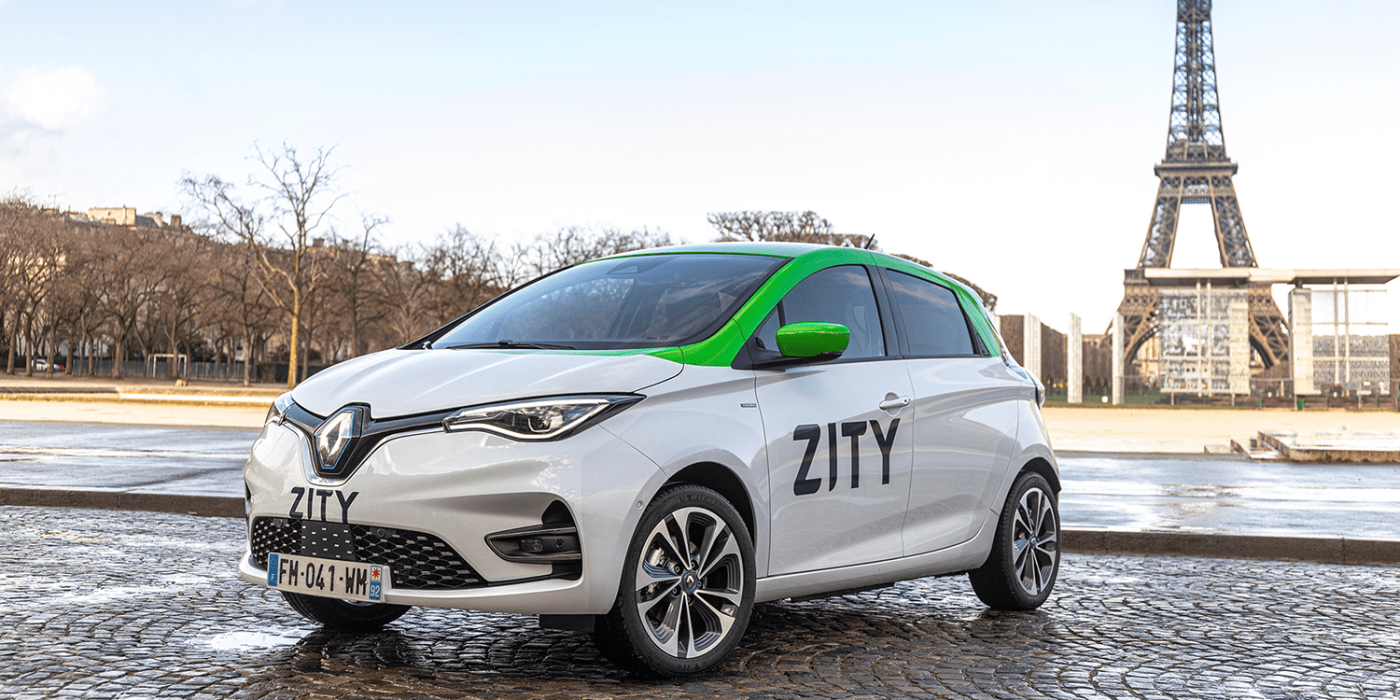
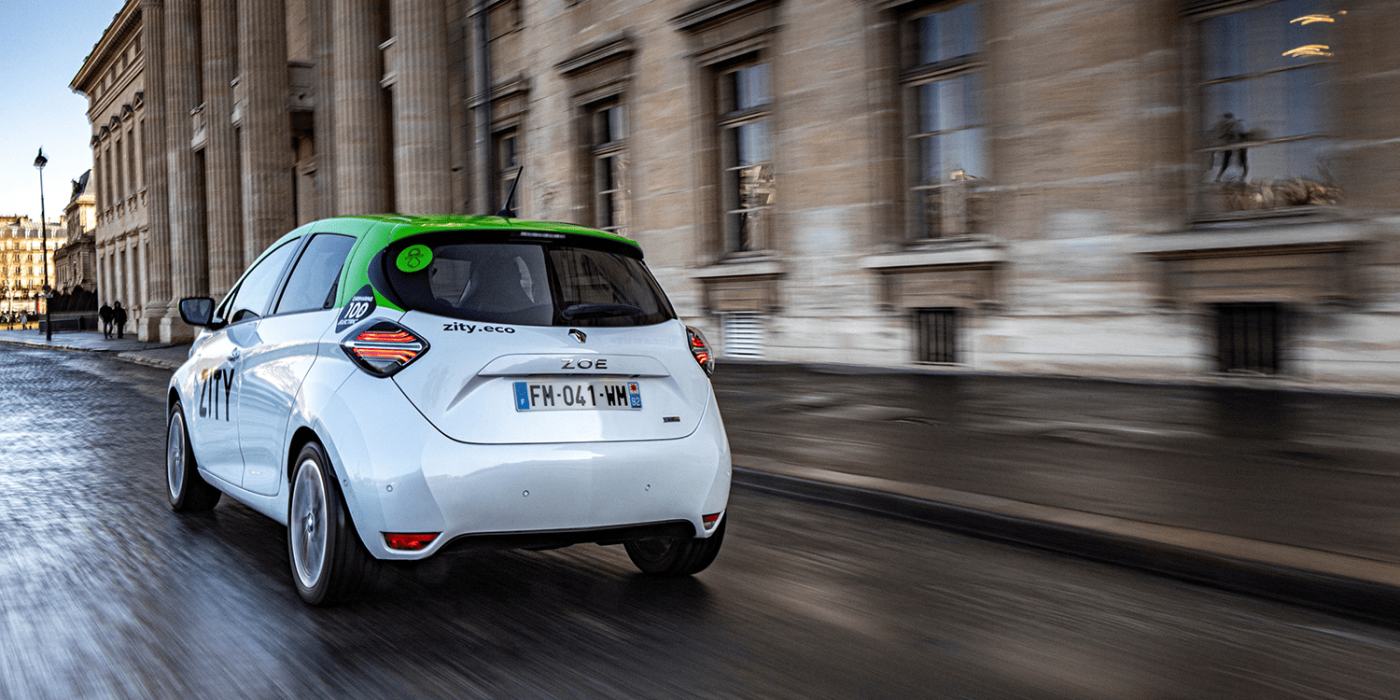
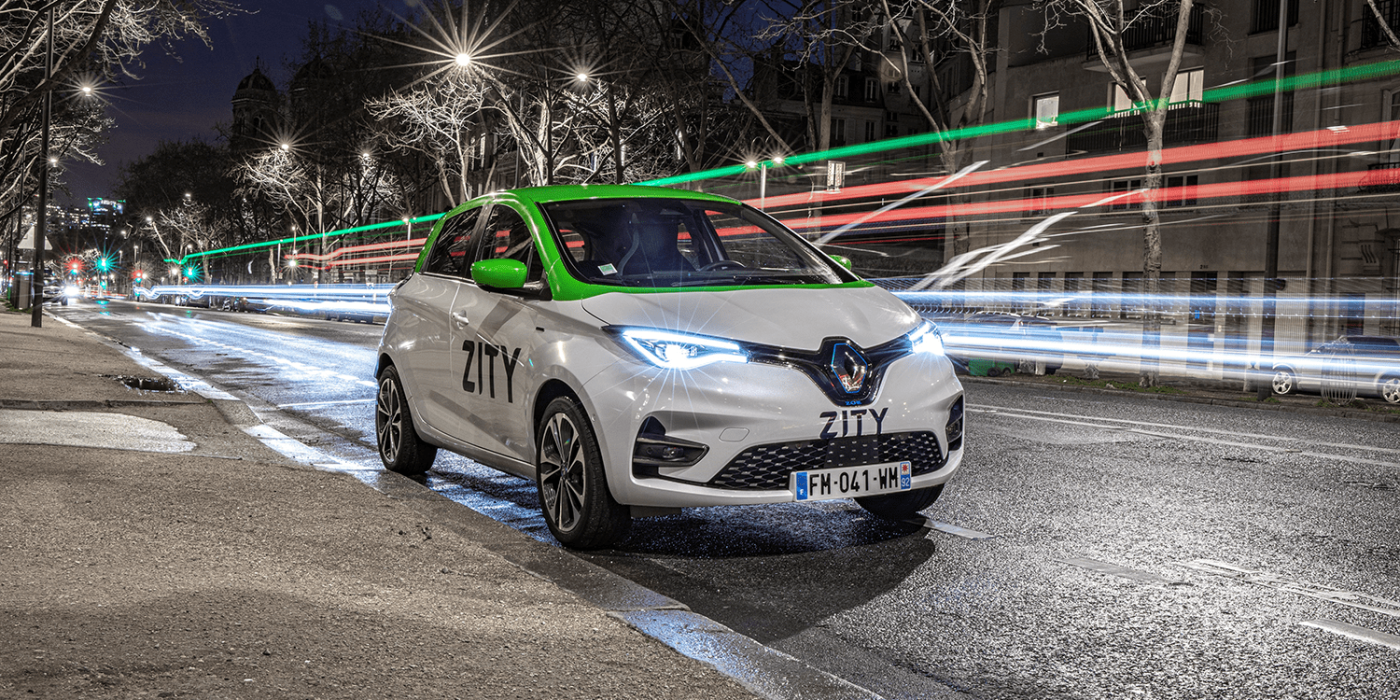
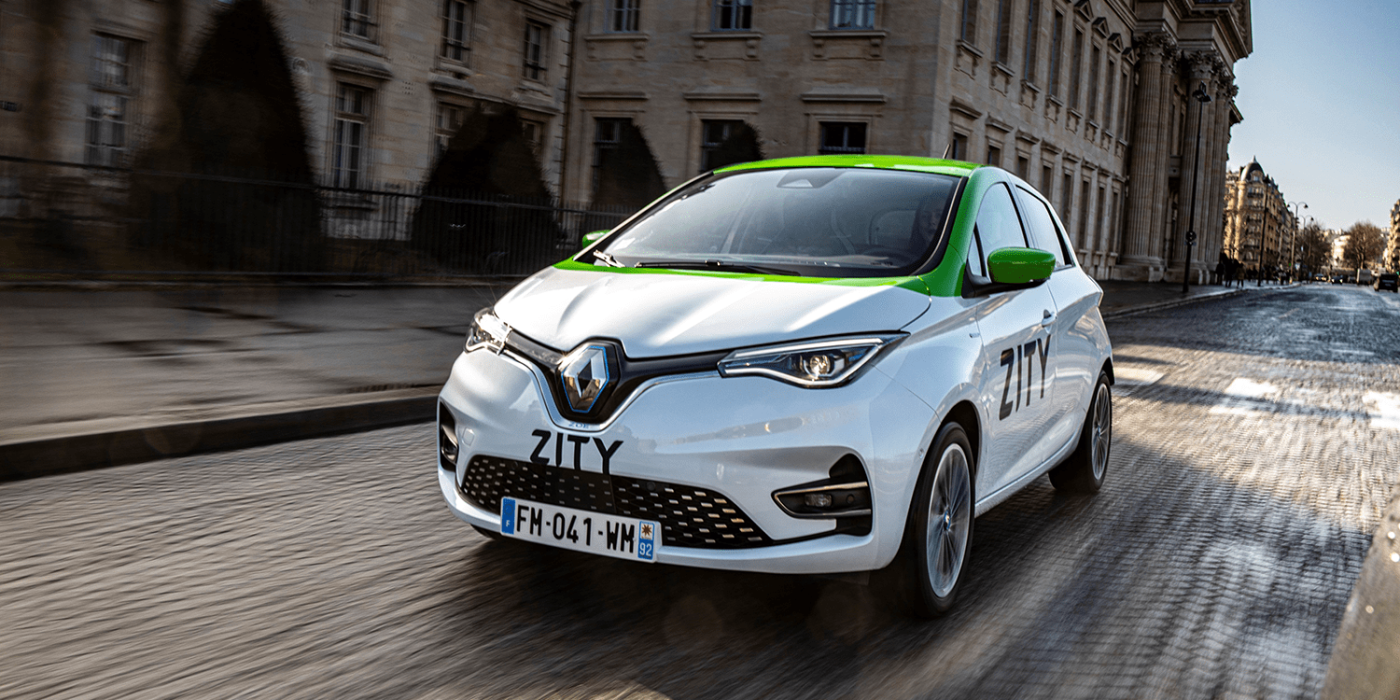
In an accompanying press release, the French company advertises Zity as a particularly flexible offer that is accessible around the clock: customers can choose between a minute model, a fixed rental period (4, 8 or 24 hours) or time credits with “savings packages” without registration or subscription fees. In addition, a “stand-by” price is to be introduced in the event that a customer wants to park their vehicle for a while while while using it (whether inside or outside the business area). The electric car will then have to be parked for good in Paris or Clichy – in a ground-level public car park (i.e. not an underground car park), which is likely to be the biggest challenge for customers given the shortage of parking spaces in the French capital.
According to Gilles Normand, Renault’s head of Electric Vehicles & Mobility Services, a particularly powerful software and app is at the heart of the new offering. It not only enables users to locate, activate and lock vehicles, but also enables the supplier to identify demand hotspots and, of course, to identify vehicles with a charge level below a certain minimum level.
Renault expects high demand for the sharing service in Paris
“The ZITY electric car-sharing service in free-floating offer has many advantages, including flexible booking times and the availability of vehicles, in the right place at the right time, thanks to a high-performance application,” says Normand. “With a cleaner, accessible and sustainable mobility offer, ZITY also provides a response to the needs of cities to reduce CO2 emissions and to combat pollution”. In Paris, Renault is expecting high demand. “20 per cent of the capital’s inhabitants use car sharing,” the company said, citing a ministry report from 2017.
Renault and the Spanish construction and infrastructure group Ferrovial have already been testing their cooperation for a good two years in Madrid. “We look forward to continuing our cooperation and contributing the experience and technology developed. It was the key to user acceptance in Madrid,” comments Ignacio Madridejos, Managing Director of Ferrovial, on the upcoming market launch in Paris.
In Madrid, the electric car-sharing business area covers 104 square kilometres. 725 units of the Renault Zoe are currently in use there. The price list is as follows: The price per minute is between 0.21 and 0.31 euros, the stand-by price is between 0.06 and 0.12 euros. Alternatively, 4 hours fixed costs 29 euros, 8 hours 49 euros and 24 hours 69 euros. Certainly also a clue for the concrete prices at the Seine, which have not yet been made public.
With reporting by Cora Werwitzke, France

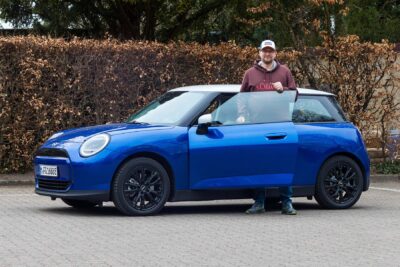

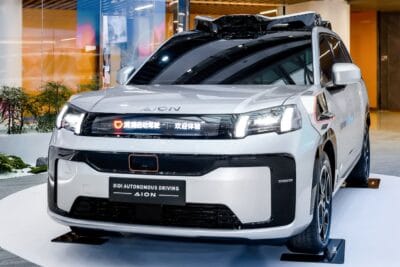
0 Comments